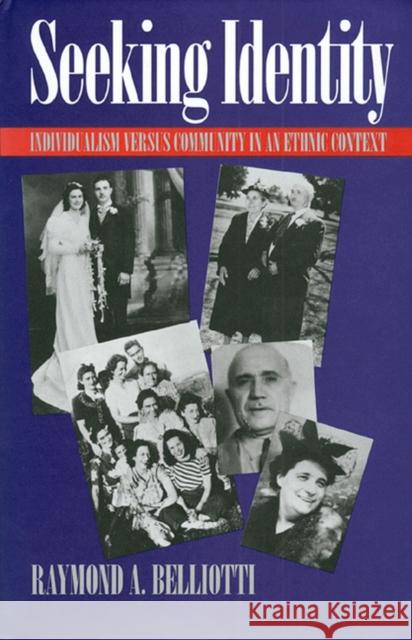Seeking Identity: Individualism Versus Community in an Ethnic Context » książka
topmenu
Seeking Identity: Individualism Versus Community in an Ethnic Context
ISBN-13: 9780700607303 / Angielski / Miękka / 1995 / 272 str.
When Raymond Belliotti was twelve, he stole from a local merchant. After making restitution and apologies, he was faced with his mother's Italian-American pride and wrath--he had besmirched the family name, reinforced stereotypical criminal images of Italian-Americans, and repaid the sacrifices of his parents and grandparents with disgrace. The message was clear--his self-indulgent greed had taken down an entire family network. But later that night his mother symbolically welcomed him back into the fold by baking his favorite cookies. The family survived and he never stole again.
In Seeking Identity, Belliotti combines ethical theory and personal experience as he explores family and community influences on individual behavior within an ethnic setting. He scrutinizes the fine line Italian-Americans and others with ethnic ties must continually tread between personal freedom and community bonds. Individuals, he shows, are linked to a variety of often conflicting groups-family, friends, neighborhood, country, international alliances, and ethnic, gender, and racial unions. Constantly influenced by ancestry and affiliation, Belliotti argues, they simultaneously long for emotional attachment yet are horrified that their individuality may evaporate once they achieve it. Outlining the unwritten but deeply ingrained system of moral rules that Italian immigrants brought to America, Belliotti examines that system in relation to the current debates on moral theory between those who argue we owe the most to people close to us and those who contend we must attach no special weight to our own interests when determining proper moral action. He also investigates philosophical, historical, sociological, and political aspects of government authority, examines conflicting images of Italian immigrant women, and analyzes war and pacifism. In some respects, Belliotti contends, the self is deeply situated, socially embedded in contingent family, ethnic, and national understandings. But in other respects, it is adrift and never fully resolved as it struggles to define and redefine itself during its unremitting journey along multiple dimensions of the individualism-community continuum.










